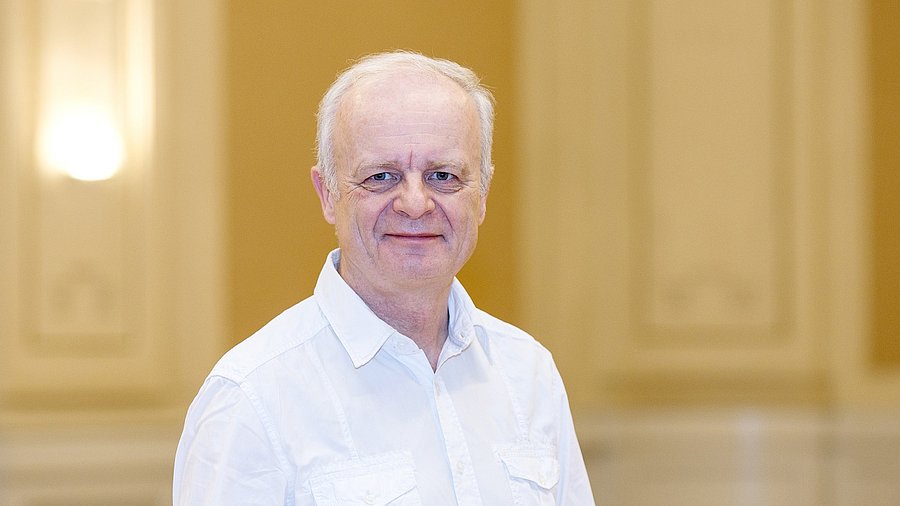
Archaeology and religion around the Holy City
Prof. Dr. Dr. Dr. h.c. Dieter Vieweger / Biblical-Archaeological Institute
Photo: Sebastian Jarych
"We have corrected many a world view that was thought to be certain"
Prof. Dr. Dr. Dr. h.c. Dieter Vieweger, Executive Director of the two institutes of the German Protestant Institute for Classical Studies of the Holy Land in Jerusalem and Amman and Director of the Biblical Archaeology Institute at the Bergische Universität remains in Jerusalem. An interview about the 125th anniversary of the German Protestant Institute for Classical Studies of the Holy Land in Jerusalem and the current situation on site.
Mr. Vieweger, you are the Executive Director of the two institutes of the German Protestant Institute for Classical Studies of the Holy Land in Jerusalem and Amman, representative of the Provost in Jerusalem and coordinator of Protestant educational work in the Holy City, as well as Director of the Biblical Archaeological Institute at the Bergische Universität. In 2023, the German Protestant Institute for Classical Studies will celebrate its 125th anniversary. An occasion that you actually wanted to celebrate in style, but have postponed for the time being due to the current war situation. How did the founding of this institute actually come about?
Vieweger: When the Church of the Redeemer in the Old City of Jerusalem was formally consecrated on October 31, 1898, even the German Emperor Wilhelm II visited the Holy City for the occasion.
Construction work on the German Protestant church in Jerusalem's Old City, which is just a stone's throw away from the Church of the Holy Sepulchre, had already begun in 1893. During the excavation work, a sensation occurred: the construction workers came across a 1.60 meter wide wall, which was inspected by contemporary scholars. The German architect and archaeologist Conrad Schick thought it was possible that this was the city wall from the time of Jesus that Herod the Great had built.
With the help of the still young science of archaeology, the dispute between Protestant and Catholic Christians over the historically correct execution site of Jesus from Nazareth seemed to have been settled. The new place of worship was located directly above the archaeological evidence for the authenticity of Golgotha. With this pious conviction, Kaiser Wilhelm II consecrated the church on Reformation Day in 1898.
The then Bavarian Chief Consistorial President Dr. Alexander von Schneider then put forward the idea of founding an institute dedicated to the cultivation of Protestant antiquities in Jerusalem as part of the festivities. This idea was taken up by the Emperor and on June 19, 1900 the "German Protestant Institute for the Study of Antiquities of the Holy Land" foundation was established by the German Protestant Church Conference in Eisenach. Its aim was to "... cultivate, revitalize and regulate relations between the sites of sacred history on the one hand and scholarly research and the interest of Christian piety in the Protestant Church on the other in the field of biblical and ecclesiastical antiquity studies."
